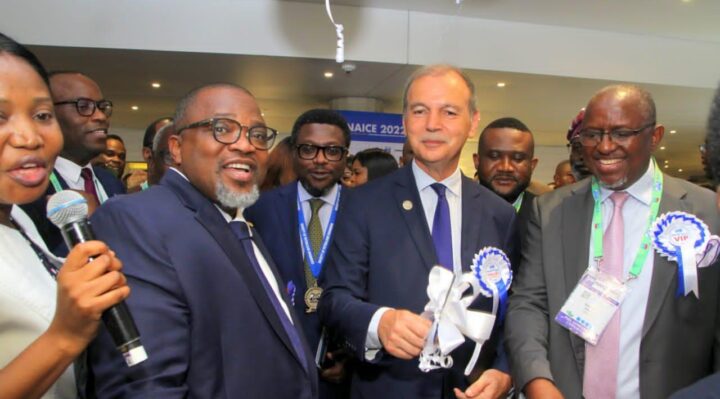FG Blames Oil Marketers Over Increase In Price of Petrol To N178 Per Litre
…says it has nothing to do with the increase in price of petrol
The Minister of State for Petroleum Resources, Timipre Sylva, says the Federal Government is not responsible for the increase in the price of petrol across the country.
According to Sylva, the government is still subsidising petrol.
The Minister who spoke at the Nigerian Midstream and Downstream Petroleum Regulatory Authority (NMDPRA) stakeholders’ consultation forum on regulations, said the marketers are most likely to blame.
“I can tell you authoritatively that we have not deregulated,” he said.
“The government is still subsidising. If there are increases in price, it is not from the government. It is probably from the marketers.
“But I will talk to the authorities to actually regulate the price. But this is not from the government. We have not deregulated.”
The minister said while the official pump price of the product is pegged at N165 per litre, many filling stations have been selling for as high as N180.
About 12 regulations, with input from over 1,156 experts, mainly Oil Producers Trade Section (OPTS), Independent Petroleum Producers Group (IPPG), petroleum products marketers, World Bank, Nigeria LNG Limited (NLNG) and others are being fine-tuned at the event.
Some of the regulations are Petroleum (Transportation and Shipment) Regulations, Assignment and Transfer of Licence and Permit Regulations, Midstream and Downstream Petroleum (Operations) Regulations, Petroleum Pipeline Regulations, Gas Pricing Domestic Demand and Delivery Regulations, Natural Gas Pipeline Tariff Regulations, Midstream and Downstream Decommissioning and Abandonment Regulations, Environmental Regulations for Midstream and Downstream Operations, Midstream and Downstream Gas Infrastructure Fund Regulations and Environmental Remediation Funds Regulations.
“Coming on the backdrop of the Petroleum Industry Act (PIA) passed, last year, the success or failure of the law in the downstream and midstream segments is largely dependent on the new regulations, which are expected to serve as vehicles for driving provisions of the law”.
“Recall that the price control for petroleum products, especially petrol and gas, has been a disincentive for many investors, and a major reason Nigeria’s petroleum industry has been unable to make significant impact in Gross Domestic Product (GDP).”
He described the new regulations as fulfilment of the provisions of Sections 33 and 216 of the PIA 2021, which mandate NMDPRA to consult with relevant stakeholders prior to finalising and making any regulations concerning the processing, refining, transmission, distribution, supply, sale and storage of petroleum products, or any other matters deemed expedient by the agency.
“This administration understands the need to have all-encompassing, well thought-out and unambiguous regulatory instruments that are painstakingly developed to meet the current and future aspirations of the government. This is required to attract much needed investments and create opportunities in the sector; hence the need for stakeholders’ participation and engagement in developing regulations, processes and procedures.”
Chief Executive of NMDPRA, Ahmed Farouk, said the new regulations are the critical leeway that would unlock needed investment in the midstream and downstream segment of the petroleum industry.
According to him, the investment, which would translate to more revenue from the government and job creation for the populace, will not come unless there’s clarity in the sector, adding that investors are concerned about the pricing of petroleum products, especially gas.
He said while a segment, like the midstream is being opened up through the PIA, the opportunities could only come when there are investors.
Meanwhile, petrol subsidy claims continue to skyrocket.
According to the Nigerian National Petroleum Corporation (NNPC) Limited, petrol subsidy claims reached N2.6 trillion in the first half of 2022, surpassing revenue generated from the sale of crude oil.
L-R: Exhibition committee Chairperson, Bola Femi-Saliu; Chairman, SPE Nigeria Council, Prof.Olalekan Olafuyi; SPE Nigeria BOT Member, Olatunji Akinwunmi; President SPE International, Kamel Ben-Naceur and MD, NNC IDSL linited , Marcel I.Amu at the opening ceremony of Society of Petroleum Engineers (SPENAICE 2022) in Lagos recently…….

